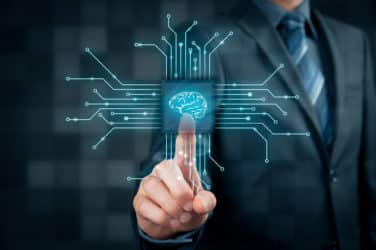The Borg first came for the cost centers, the middle- and back-office positions. Now, armed with the latest artificial intelligence, automation has set its sights the firm’s profit centers, and traders and portfolio managers are running scared.
The first generation of AI-based technology has established a firm foothold in such areas as managing passive index-based funds and client ‘onboarding’.
Startups like Betterment, FutureAdvisor , and Wealthfront, are forcing the hand of large brand-name asset managers to build or buy their AI-based systems.
The bad news for traders and portfolio managers is that artificial intelligence is getting smarter and moving into the realm of active portfolio management.
One vendor, Trade Ideas, offers an AI-based system that identifies approximately half a dozen opportunistic trade ideas to retail investor advisors.
Company officials quickly point out that their system doesn’t execute the trades that system identifies. It only brings them to an advisor’s attention.
Only a small amount of hedge funds currently use AI-based order execution strategy the encompasses a single asset class like equities or highly liquid futures contracts.
It’s only a matter of time before computer scientists will be able to execute multi-leg multi-asset strategies involving less-liquid instruments.
How is the average buy-side trader or portfolio manager compete against such technological advancements?
Average employees simply won’t, just as the industrial revolution’s mechanization replaced the average artisan.
Unless they marry into the owner’s family or know about the firm’s “other” off-shore server, the prognosis for average performers does not look good.
However, there are a few issues to keep in mind.
AIs like 2001: A Space Odyssey’s HAL and The Moon is a Harsh Mistress’ Mycroft XXX are still fantasy. No one has come close to introducing an AI capable of abstract thought. Every AI simply is a sophisticated algorithm written by programmers who include their conscious and subconscious biases into their code. There is no perfect AI, and there isn’t enough of a track record of their long-term performance.
As long as a role requires some level of ingenuity, that jobs will be safer than most. AIs have not developed new financial instruments, go-to-market strategies, nor figured out how new regulations will change the business.
For now.
More on Artificial Intelligence:
- Machine Readable Data Could Boost RegTech
- Robo-Advisors Eye Active Management
- Coming Up: More Intelligent Automation





